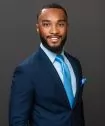Religious Institutions Turning to Live Streaming in the Face of COVID-19
In a few short weeks, the widespread transmission of COVID-19 (the “coronavirus”) has caused institutions and governments alike to make sweeping changes to combat the further spread of the virus. In response, organizations are adopting measures to ensure the health and safety of the general public. For example, recently, California, Michigan, and New York issued shelter-in-place orders, mandating that state residents remain in their homes. Meanwhile, several other states are currently proposing and considering similar crowd bans, nonessential business restrictions, and additional measures to assist in facilitating social distancing and further reducing transmission of the coronavirus. Religious institutions such as churches and places of worship are not exempt from these evolving changes caused by the COVID-19 pandemic. As a result, religious institutions are scrambling to find alternatives to in-person gatherings, including live streaming services. However, by adopting streaming services, these religious institutions may be unintentionally exposing themselves to intellectual property liability.
Nowadays, it is easier than ever to share content with audiences throughout the world without physical presence. The Internet has ushered in various ways for religious institutions to share various content with worldwide audiences. Through social media and live streaming services, such as Facebook Live, Periscope, YouTube, and podcasting services, religious groups can share their messages beyond the walls of their houses of worship and reach thousands of individuals in the comfort of their homes. It is no surprise then that these institutions are live streaming services as an alternative to in-person gathering in the face of the coronavirus pandemic. However, by using online tools to combat the spread of the coronavirus, religious institutions may be exposing themselves to copyright infringement liability. Religious institutions typically do not need to pay for licenses to play or perform copyrighted music during a worship service; however, this exception does not apply when copyrighted music is recorded or streamed online. Accordingly, religious institutions will need to consult with legal counsel to secure the proper licensing for the visual and musical content they share across a variety of digital platforms.
Several religious institutions have been subjected to copyright infringement lawsuits for improper streaming and recordings. A clear example of the potential risks and liabilities for copyright infringement occurred in late 2011 when music composer Yesh Music filed a complaint against First Baptist Church of Smyrna, Tennessee, seeking a judgment exceeding $150,000. The church performed two of Yesh’s musical compositions in a worship service live-streamed from its website. More recently, Yesh filed a similar $3 million lawsuit against renowned pastor Joel Osteen and Lakewood Church in Houston, Texas for streaming Yesh’s song “Signaling Through the Flames” during a worship gathering.
U.S. COPYRIGHT LAW
U.S. Copyright laws protect authors of original literary, musical, and artisticworks and prohibit others from reproducing, distributing, transmitting, or publicly performing these works without the author’s permission. Copyright protected works include hymnals, sheet music, musical compositions, lyrics, and even photos. Unlike other laws, copyright laws are laws of strict liability. In other words, the fact that a church did not know that it was infringing the copyright law is not a valid defense to copyright liability.
Compliance with U.S. Copyright laws is critical for religious institutions not only because violating such laws are unlawful, but also because violations can trigger stiff penalties. Copyright owners who timely register their works are entitled to recover statutory damages ranging from $750 to $30,000 per work, or up to $150,000 per work for instances of willful infringement. Even if they failed to timely register their works, copyright owners can still collect actual damages from infringing reproductions or recover profits religious institution receives for selling or collecting donations for any recordings containing their protected works.
LIMITATIONS TO THE COPYRIGHT RELIGIOUS SERVICE EXEMPTION (RSE)
While U.S. Copyright laws include an exemption for religious institutions playing or performing copyrighted works during a religious service, they do not excuse religious institutions from certain forms of musical and literary rebroadcasting and recordings. Specifically, the U.S. Copyright Act provides a limited exception for the performance of nondramatic literary or musical works of a religious nature in the course of services at a place of worship. Federal courts have interpreted the exemption for religious institutions narrowly, holding that it applies in only “a place of worship” and does not provide protection for online live streaming or recording copyrighted works. Accordingly, unauthorized live streaming or rebroadcasting a recording of protected works in a service can be unlawful because it may constitute reproduction outside of the place of worship. Similarly, the use of copyright-protected photos or visual aids during a rebroadcasted worship service, or a music performance during a worship service, may exceed the scope of the religious service exemption.
The religious copyright exemption is also limited to “religious assemblies” and may not apply to all aspects of a religious institution. Reproduction or public performance of copyrighted works during concerts, school events, workshops, or other nontraditional religious assemblies are also considered infringing acts that will trigger penalties under U.S. Copyright laws.
EXPECTED INCREASE IN COPYRIGHT LAWSUITS
The number of copyright infringement lawsuits is estimated to increase in the coming years as Congress considers passing the Copyright Alternative in Small-Claims Enforcement Act of 2019 (CASE). The purpose of CASE is to give creators of protected works practical and affordable means to enforce their intellectual property rights (e.g., their copyrights). If the law passes, it will allow for the creation of a small claims board at the U.S. Copyright Office that will adjudicate copyright disputes and allow for recovery of damages up to $30,000. This board will create a more affordable mechanism for copyright owners to enforce their rights and will likely result in an increased number of copyright lawsuits. Frankly, many religious institutions do not have the resources to combat a copyright lawsuit. Accordingly, it is important to ensure that religious institutions are operating within the scope of U.S. Copyright law.
CONCLUSION & RECOMMENDATION
As religious institutions consider live streaming as an alternative to mass gatherings in the face of the coronavirus, they can protect themselves from incidental copyright liability by securing the proper licenses and permissions to use copyrighted works. Not all religious institutions have the same needs, and the evolving regulations regarding coronavirus may influence each differently. To avoid the penalties of noncompliance and liability for copyright infringement, church leaders and decision-makers should consult with legal counsel before live streaming and recording their religious services. A licensed attorney can provide an informed recommendation and secure the proper licensing that is tailored to religious activities in the face of the COVID-19 pandemic.
The content of this article is intended to provide a general guide to the subject matter. Specialist advice should be sought about your specific circumstances.


